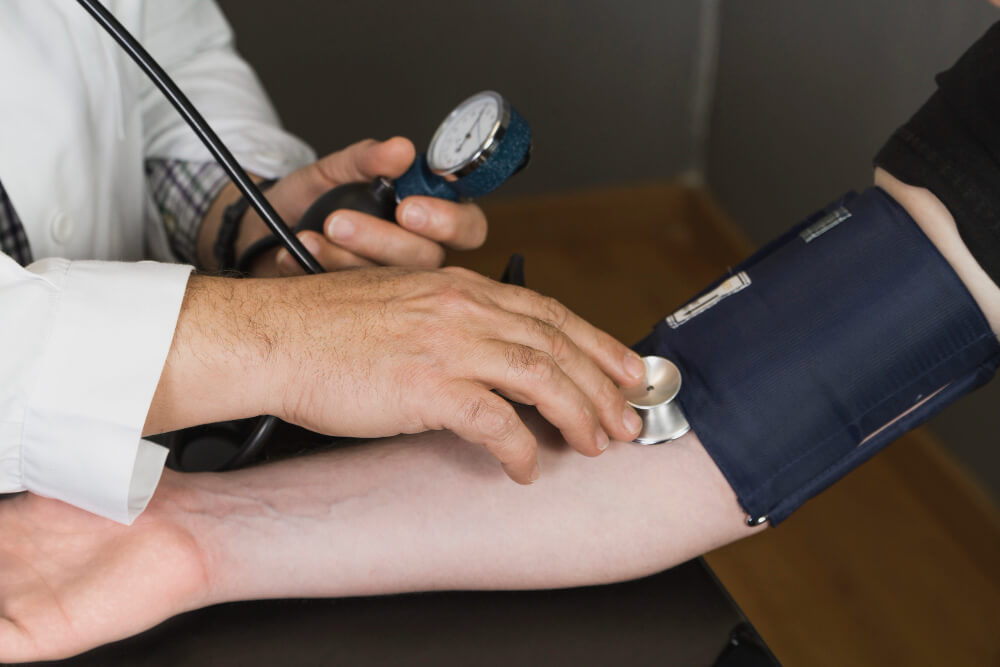Primary Care Physicians For Hypertension Management
High blood pressure, also known as hypertension, is a common condition that affects millions of people worldwide. It occurs when the force of blood against your artery walls is consistently too high. If left untreated, high blood pressure can increase your risk of heart disease, stroke, kidney disease, and other serious health problems.

The Importance of Managing High Blood Pressure
Managing high blood pressure is essential for preventing these serious health complications. Primary care physicians (PCPs) play a vital role in providing comprehensive care for individuals with hypertension.
- Reducing Your Risk of Stroke and Heart Disease High blood pressure is a major risk factor for stroke and heart disease. By effectively managing your blood pressure, you can significantly reduce your risk of these conditions.
- Improving Your Quality of Life High blood pressure can cause symptoms such as headaches, dizziness, and fatigue. By managing your blood pressure, you can improve your overall quality of life.
- Preventing Kidney Damage High blood pressure can damage your kidneys. By managing your blood pressure, you can help protect your kidneys.
The Role of Primary Care Physicians in Hypertension Management
Primary care physician are responsible for:
- Diagnosing High Blood Pressure Regularly monitoring your blood pressure and diagnosing hypertension.
- Developing a Treatment Plan Creating a personalized treatment plan that includes lifestyle changes and medications, if necessary.
- Monitoring Your Progress Regularly monitoring your blood pressure and making adjustments to your treatment plan as needed.
- Providing Education and Support Educating you about hypertension and providing support to help you manage your condition effectively.
- Coordinating Care Working with specialists, such as cardiologists, if necessary, to ensure comprehensive care.
Lifestyle Changes for Hypertension Management
Lifestyle changes can play a significant role in managing high blood pressure. Your primary care physician can provide guidance on the following:
- Healthy Diet Eating a healthy diet that is rich in fruits, vegetables, whole grains, and lean protein.
- Regular Exercise Aim for at least 30 minutes of moderate-intensity exercise most days of the week.
- Weight Management If you are overweight or obese, losing weight can help lower your blood pressure.
- Stress Management Managing stress through relaxation techniques, such as yoga or meditation.
- Limiting Alcohol and Sodium Reducing your intake of alcohol and sodium can help lower your blood pressure.
- Quitting Smoking Smoking can raise your blood pressure. Quitting smoking can significantly improve your cardiovascular health.
Medication for Hypertension
In some cases, medication may be necessary to help manage high blood pressure. Your primary care physician can prescribe a variety of medications, including:
- Diuretics Medications that help your body eliminate excess fluid and sodium.
- Angiotensin-Converting Enzyme (ACE) Inhibitors Medications that relax blood vessels and improve blood flow.
- Angiotensin II Receptor Blockers (ARBs) Medications that block the effects of angiotensin II, a hormone that constricts blood vessels.
- Calcium Channel Blockers Medications that relax blood vessels and slow your heart rate.
- Beta-Blockers Medications that block the effects of adrenaline, which can raise your blood pressure.
Monitoring Your Blood Pressure

Regularly monitoring your blood pressure is essential for effective hypertension management. You can use a home blood pressure monitor or have your blood pressure checked at your doctor’s office.
- Home Blood Pressure Monitoring Using a home blood pressure monitor can help you track your blood pressure over time and identify any trends.
- Doctor’s Office Visits Regular visits to your doctor for blood pressure checks are essential for monitoring your condition and making adjustments to your treatment plan as needed.
Seeking Medical Attention
If you have concerns about your blood pressure, it is important to see your doctor for a thorough evaluation. Your doctor can diagnose hypertension and recommend appropriate treatment.
Symptoms of High Blood Pressure While high blood pressure often has no symptoms, you may experience:
- Headaches
- Dizziness
- Fatigue
- Shortness of breath
- Nosebleeds
- Vision problems
High blood pressure is a serious condition that can increase your risk of heart disease, stroke, and other health problems. By working with your primary care physician, you can effectively manage your blood pressure and improve your overall health and well-being.
Contact our Primary care doctor for hypertension management +1 (432) 322-8675 Or Visit us https://sccodessa.com/
